- Learning time
- 60 minutes
- First play time
- 240 minutes
Merchants and Marauders
Designed by: Christian Marcussen,Kasper Aagard
Merchants and Marauders offers a hint in the title: you can play merchant, you can play marauder, or you can start as one and flip to the other!
Set on the high seas of the Caribbean in the distant past, each player begins the game with a captain (of a certain nationality) and a boat (sloop or frigate) with each aspect having certain strengths and weaknesses: leadership, seamanship; strength of hull, manoeuverability and so on.
It’s a fairly complex game so we can’t cover every aspect, but your goal is to be the first to score ten Glory Points, so let’s start with how you get them: by raiding merchants (or other players), selling goods, completing missions, substantiating Rumors, buying a bigger boat, and – best not forget! – secretly stashing gold.
You begin with ten gold at your disposal and with your ship in your home port. On your turn you take three actions: you can move (in or out of port, or from one sea space to another) scout for ships (assuming you mean to raid them!) or take a port action when docked at the numerous destinations on the board. When at port there are a number of things you can do, all considered to be part of the same single action: sell goods, buy goods, improve/repair your ship, recruit crew, seek rumors and missions. The busyness of those port actions contrast with the simplicity elsewhere, but – as with scouting – the success of some of these actions depend on the dice-rolling abilities of you and your captain: leadership, seamanship, scouting and influence are all put to the test: your captain denotes how many dice you get to roll, and a skull symbol means you succeeded.
Likewise when at sea, scouting for a victim is a seamanship roll, and attacking other players or NPCs (non-player characters, who roam the waters) also have an element of dice-rolling. Combat is a bit too fiddly to get into here, but after a battle or two familiarity speeds things up.
Around the simple trade and/or attack options available are some other things: each port has a resource that’s in-demand: ie worth double when you sell there. Ports or sea zones also have specific rules – handily printed on the board – and the game plays out amidst the backdrop of four empires – England, Spain, France and the Netherlands – lurking in the waters. Because ports and merchants all have a nationality, raiding a Spanish merchant, for instance, means you now can’t visit Spanish ports – and the Spaniards have put a bounty on your head, making you an attractive proposition for the other players… also in the mix are more non-player pirates, who will come after anyone they see loitering close enough to make them a victim. Finally, each round has an Event adding narrative events that may or may not affect the players: storms at sea, war between nations, or a big Spanish Man o’War close enough to come after you if you’ve still got that Spanish bounty!
Whenever you score Glory points you also get a Glory card that can help you in the game in some way – or hinder someone else. Any stashed gold stays hidden until someone announces they’ve reached the winning target. At that point the current round is finished – other players may also hit the target – and most glory points wins.
The guru's verdict
-
Take That!
Take That!
Plenty - from pirates or powers or, most likely, violently-inclined other players.
-
Fidget Factor!
Fidget Factor!
There can be lulls amid the squalls: although movement and trading is pretty breezy, both combat and port actions are a bit more involved. It's an oddeyssy as much as a romp.
-
Brain Burn!
Brain Burn!
The complexity is that of process, rather than a big parcel of strategic thinking. Movement couldn't be simpler, but you need to factor in events, powers, bounties, other players, and the multiple options at your disposal.
-
Again Again!
Again Again!
If you're ok with the initial learning obstacle and the overtly combative aspects herein, then Merchants and Marauders offers a lot of replayability: there's randomness and variability at almost every turn.

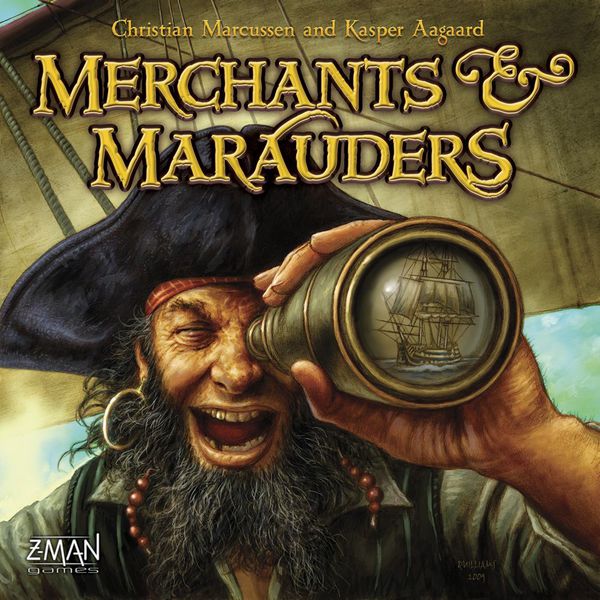
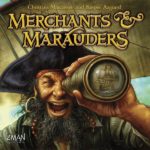
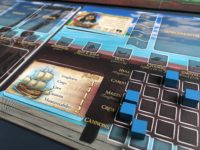

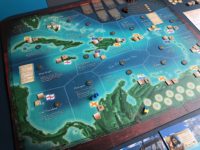
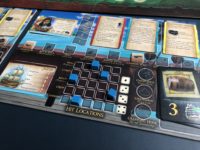
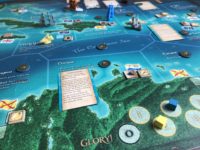
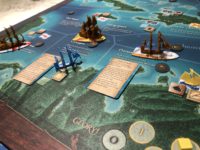
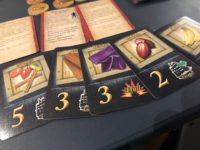



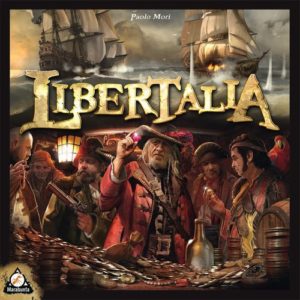
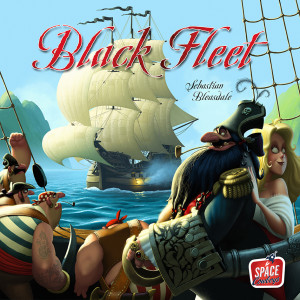
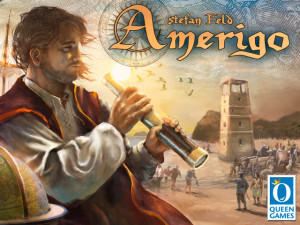

Sam says
I like a game with a story, with many options to choose from, with some luck-pushing dice-chuckin' goodness perhaps more than chess-like cognitive optimization. So Merchants and Marauders gets a big tick from me, albeit you need to be onboard with the romanticism of piracy - they're so romantic, right up until the moment they cut your throat and make off with your stuff! - and the whiff of colonialism here: it's a small part of the game, and not exactly a celebration - but present nonetheless. For me the slight fiddlyness of combat and the pauses of port actions mark it down ever so slightly when I compare it to my go to crazy-narrative-adventure game of Xia, but all the same: a lot of fun to be had here.